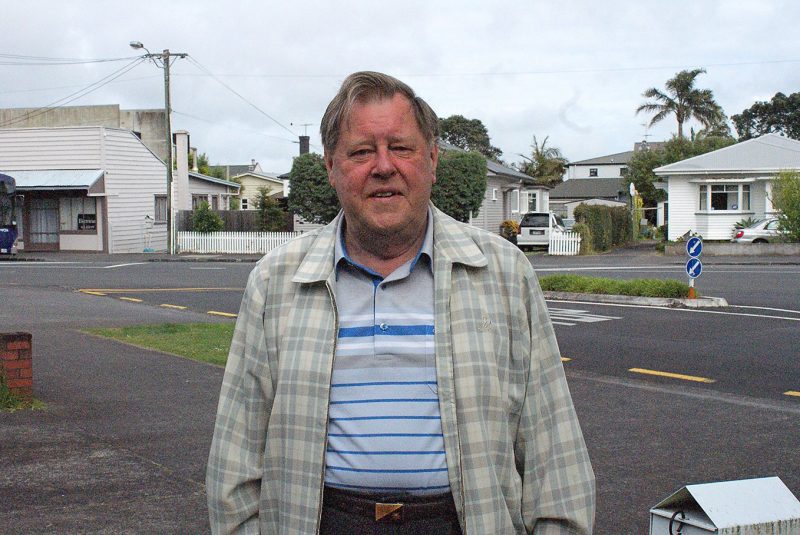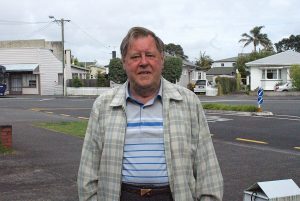by ROWENA OREJANA
When newly ordained Columban missionary Fr Robert John Brennan stepped onto Korean soil 50 years ago, South Korea was far from the bustling global economic powerhouse that it is now.
In 1965, the nation was reeling from the ravages of more than 30 years of Japanese occupation, the war between North and South Korea that followed and the coup d’etat by the military, which saw the ousting of a Catholic prime minister.
“I was 24,” said Fr Brennan, who asked not to be referred to as monsignor (“too formal”).
“When you are young and 24, everything is an adventure. Everything is exciting and you have the health and the
strength and the inspiration and all that to overcome [adversity].”
Fr Brennan was sent to Jeongseon in Gangwon Province in 1969. Living standards were low. It was bitterly cold in
winter and very hot in summer.
“The first 10 years I spent in a mountain parish in an isolated coal mining area, and it was very tough, hard living.”
And although it was very hard going, he said, “that was my choice. It wasn’t as though I was forced to go”.
That first pastoral mission would define the path of his ministry: “All the time working for the poor, first in a rural setting and, later on, in the urban setting.”
The people in the town were very poor and there was no hospital.
“I asked the Franciscan Missionaries of Mary Sisters to come and build a hospital, and together we raised the money
for them to build a small clinic,” he said.
He also set up the Jeongseon Credit Union in 1973. “I just collected, I think, what would be the equivalent of 10 cents each from 30 people and started with about $3,” he said. The credit union is now worth $60 million and “just about everyone in town belongs to the credit union now”.
In the 1980s, Fr Brennan was sent to Seoul. It was a time of modernisation, and the military government was pushing for an industrial state.
“Labourers were used and abused. Labouring conditions were very bad. Some of the bishops, including the cardinal
[Kim Sou-hwan] in Seoul were quite outspoken against these injustices, speaking out for the rights of poor, oppressed people and fighting against unjust laws.”
Fr Brennan’s bishop, Daniel Tji, was jailed, although he did not serve his full 15-year sentence. Its stand for justice made the Church attractive and credible to the people.
“This made a great impression on people — that the Church and its leadership were willing to stand up for these things.”
In the social apostolate of Seoul diocese, Fr Brennan worked for the right of slum dwellers to have proper housing.
“Seoul city was surrounded on three sides by hills that became slum areas or squatter areas. From the 1980s, the great move to redevelop these areas began.
Redevelopment basically just meant they were just “bulldozed out and high-priced apartments were built,” he said.
The diocese set up five missionary apostolates. Fr Brennan was in charge of one of the parishes. It had no church, no employees and no vehicles.
“Our basic reason for existence is not just for the Catholics in the area, it’s for all the people living there,” he said.
Fr Brennan said he was bulldozed out of his home four times by aggressive redevelopment. He now lives in a rental
unit slightly larger than 10 square metres.
“It was redevelopment basically so that the redeveloping companies can make money.
“The diocese then started this city poor apostolate, and I have been connected with that in the last 25 years,” he said.
He organised people to lobby for a law change to protect the poor. Siding with the poor meant police visits and
warnings from officials. But Fr Brennan and his group succeeded. Now, when an area is redeveloped, developers must
build rental units. The rights of renters are also recognised.
His fight is not finished, though. At 74, he said, he is edging towards retirement, but is not quite there yet.
Korea may be an economic superpower now, but there are still poor people.
“There are still a lot of poor people who, when they lived in the mountainside slum areas, were very visible. Now the slum areas are gone they are not visible any more. They live in basements, out of sight, and people either forget they are there or they don’t want to know,” he said.
He has given up his missionary parish and is now a “spare tire” priest. But he is still with the diocese’s city-poor apostolate, a board director at the Samyang Citizen’s Network as well as being in charge of a small microcredit bank (for which he doesn’t get paid).
In 2012, he was awarded the Seoul City Grand Prize for Welfare and made an honorary citizen of Seoul.
Last year he won the Asan Foundation Grand Peace Prize, which came with a cash prize of US$300,000 (NZ$450,000).
The money went to keep their projects going.
Although he had become a bit of a celebrity in Seoul, having been featured in two television programmes, he shared
the glory and the prize with the people he worked with.
“Most of the people who work here are the same: They are committed Catholics. In some cases, they are not even Catholics; they are committed Christians or, in some cases, they are just committed human beings who want to work and they are not worried about how much money they make,” he said.
It’s a different world nowadays, Fr Brennan acknowledged. “But I would certainly encourage young people to go
out and work in different cultures and economic levels for a length of time, three years, and see how it goes,” he said. “They might find it very fulfilling.”


Reader Interactions